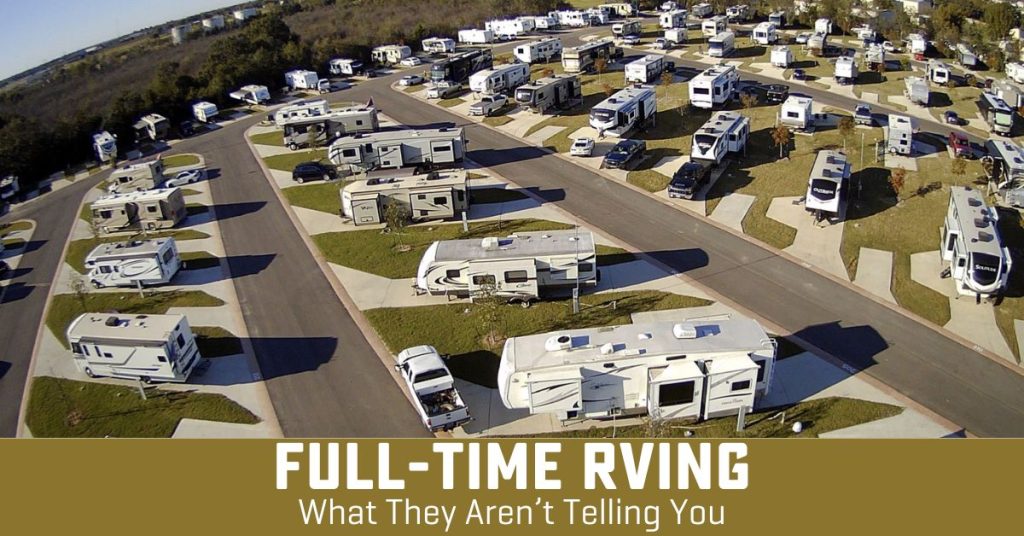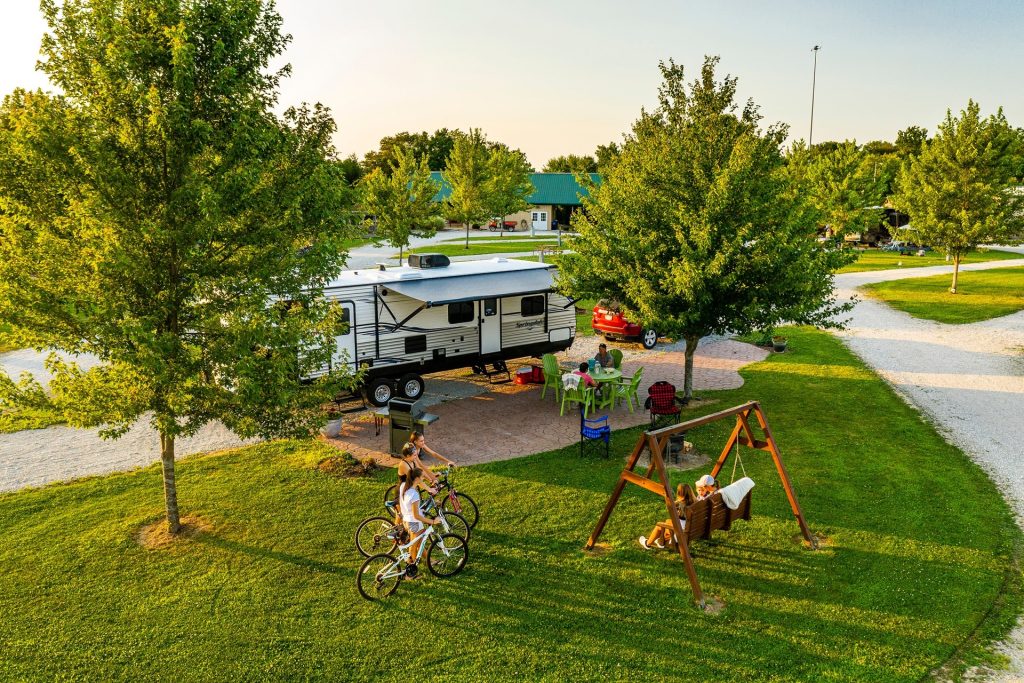
Are you thinking about hitting the road full-time in an RV?
Wondering how that decision might impact your warranty?
Full-time RVing sounds like the ultimate dream—freedom, adventure, and the open road. But there’s a hidden catch many people don’t realize: your RV warranty might not fully support that lifestyle.
In this article, we’ll pull back the curtain on what “full-time RVing” actually means in terms of your RV warranty, why it’s more complicated than it seems, and how it could affect your decisions as an RV owner.
By the end of this article, you’ll have a clear understanding of how manufacturers define “full-time use,” the potential pitfalls of full-timing with a standard RV warranty, and the steps you can take to protect yourself if you’re planning to live the RV life on your terms.
Before you Start Full-Time RVing, Watch this Video from Bish’s own Josh the RV Nerd.
“Looking for an RV that’s perfect for extended adventures? Check Out Our Clearance Models and find your fit today.”
What Does “Full-Time RVing” Mean for Your Warranty?
The term “full-time RVing” might sound straightforward, but in the world of RV warranties, it’s surprisingly complex. Most RV warranties are built around the idea of limited use: occasional camping trips, seasonal stays, or weekend getaways.
However, full-time RVing—living in your RV as your primary residence—is a different story.
Some manufacturers claim their warranties cover “full-time RVing,” but they often define it in vague or limited terms, like staying in the RV for up to six months a year. This gray area can leave RV owners confused about what’s actually covered.

Why Does It Matter?
Using your RV full-time without understanding the warranty implications can lead to unpleasant surprises.
Manufacturers technically have the right to deny warranty claims for excessive use, even if they don’t enforce it consistently.
Think of it like a car warranty—it’s limited by time and mileage. The difference is RVs don’t have odometers, so manufacturers rely on an honor system or specific terms buried in the fine print. And while most aren’t looking to trick you, their policies can still put you at risk if a dispute arises.
What Manufacturers Aren’t Telling You
Manufacturers know full-time RVing is a growing trend and design their marketing to appeal to it. Yet, warranties often reflect traditional RV use. This creates a murky situation where:
- Claims could be denied: If a manufacturer discovers the RV was used full-time in a way they don’t explicitly support.
- Definitions vary: Some manufacturers provide no clear definition of full-time use, while others define it in a way that excludes full-time living.
Transparency is scarce, even at the dealership level, and policies often differ between brands and models.

Other Key Considerations for Full-Time Rvers
Before committing to full-time RVing, keep these additional factors in mind:
- Bank Financing: Lenders don’t typically intend for RVs to be used as permanent residences. Using your RV full-time might impact loan terms, resale value, or repossession scenarios.
- Insurance Policies: Many insurance providers won’t cover RVs used as full-time homes, potentially leaving you without coverage if something happens.
- Increased Wear and Tear: Living in your RV full-time accelerates wear and tear, potentially leading to higher maintenance costs not covered by warranty.
Worried about affordability? Explore Flexible Payment Plans to make RVing easier on your budget.

How to Protect Yourself as a Full-Time RVer
Taking the right steps can help you enjoy full-time RV living without unnecessary stress:
- Know Your Warranty: Ask questions before you buy to clarify what “full-time use” means for your RV model.
- Check Insurance Policies: Look for RV insurance designed for full-time RVers to avoid coverage gaps.
- Be Strategic with Claims: When seeking warranty service, stick to the facts—e.g., “The refrigerator isn’t working.” Avoid volunteering unnecessary details about full-time living.
Ready to learn how to protect your RV lifestyle?
Get Expert Advice on Full-Time RVing
Is Full-Time RVing Still Worth It?
Absolutely!
Full-time RVing can be an incredibly rewarding lifestyle, offering unparalleled freedom and adventure.
The key is being informed and proactive. By understanding your warranty, asking the right questions, and planning ahead, you can make the most of your RVing experience without unwanted surprises.
Your next adventure could start with a simple swap! Learn About Trading In Your RV.
At Bish’s RV, we believe in giving you the tools and knowledge you need to make informed decisions. Whether you’re planning to camp part-time or embrace a full-time RV lifestyle, we’re here to help you find the RV that fits your dreams.
Have more questions? Reach out to us—we’re happy to help!
Not sure which RV suits your lifestyle?
Browse Our Inventory for options built to last.
Check out These Articles
- 6 Nasty Surprises If You Don’t Get Your RV Ready for Spring

- Five RV Tech Upgrades to Improve Your Camping Trips

- Go Explore X232: Smart Design, Maximum Storage, and Everyday Comfort

- The RV Show Buyer’s Guide: How to Find a Trustworthy RV Dealer

- RV Trade-In Secrets: How to Get the Best Deal on Your Upgrade


Greg Long
Bish’s RV Content Manager
Amateur adventurer; professional dreamer.
aka: The Bish-Blog-Guy






